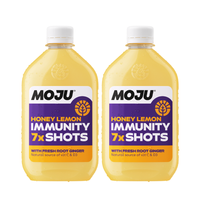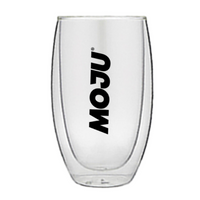Vitamin C and the Immune System
One of the major benefits of regularly taking Vitamin C is its boost to your immune system. It does this in a variety of ways.
The first way is by lending a helping hand to your body’s first layer of defence against outside infection: the skin. Vitamin C is a key catalyst in collagen production, a tough protein found in skin and connective tissues, which not only helps to fortify the skin against injury, but also promotes healthy muscles, bones and tendons. At the same time, Vitamin C may also bolster the fatty membranes in the skin, further protecting your body from outside pathogens that could cause infection.
Inside your body, another way Vitamin C works its magic is by supporting the production and operation of cells in the immune system. It performs a vital role in defending these cells and protecting them from various harmful molecules and oxidative stress, which is often caused by free radicals. Free radicals are charged particles generated by the body's regular metabolism and exposure to environmental stress, including ultraviolet radiation and air pollution.
In addition, when the body does find itself under attack from infection, Vitamin C helps direct immune cells, known as neutrophils. Vitamin C facilitates their efforts in destroying the pathogens, which could lead to further tissue damage - a more serious issue.
In contrast, various studies have demonstrated that those lacking in ‘good’ levels of Vitamin C are often also more likely to struggle to fight off infection and remain ill for longer when they get sick.
It’s Not Just For Fighting Off Infection
Vitamin C has been shown to provide various other health benefits, thanks to its chemical properties. For example, it has been shown to help in reducing the levels of the hormone cortisol. Cortisol is the stress hormone, so reducing cortisol levels can be vital to preventing excess stress, which can have a long-term impact on our overall state of health.
Vitamin C once again steps in to save the day when exercising in more ways than one. Firstly, various reports have demonstrated that Vitamin C helps with reducing post-exercise muscle soreness. It’s theorised that Vitamin C protects us against reactive oxygen species during periods of intense exercise. Then there are the possible negative effects of exercise. For instance, periods of heavy exercise can increase the risk of upper respiratory tract infections, but Vitamin C plays a part in reducing this possibility. The science behind how it does that is similar to how it helps the immune system fight off infection.
As already mentioned, Vitamin C helps the body to produce collagen. Collagen is found all over the body, playing an essential role in the formation of:
● Blood vessels
● Bones
● Cartilage
● Gums
● Skin
● Teeth
Vitamin C also helps the body to take onboard iron and foods high in Vitamin C can enhance iron absorption. This is important because of the role that iron plays in many of our usual bodily functions. For example, iron is an essential part of the oxygen system within our bodies, being found in both haemoglobin (found in red blood cells) and myoglobin (which transfers oxygen to within our cells). Iron also plays a role in generating energy from oxygen, vital to all of our daily activities.
And it doesn’t stop there. Vitamin C contributes to so many useful and required bodily functions and biological processes. These include our metabolism, nervous system, brain function, and the regeneration of other essential nutrients and vitamins.
It feels like we really have gone through a lot of material here. Essentially it comes down to the fact that there are so many vital nutrients, minerals and other chemicals essential to our body's normal, daily functions. Vitamin C, in turn, is crucial to both their creation and function.
It’s really an understated nutrient considering the many roles and challenges it takes on all over the different parts of our body. It makes you wonder why we aren’t talking about Vitamin C more, right?






